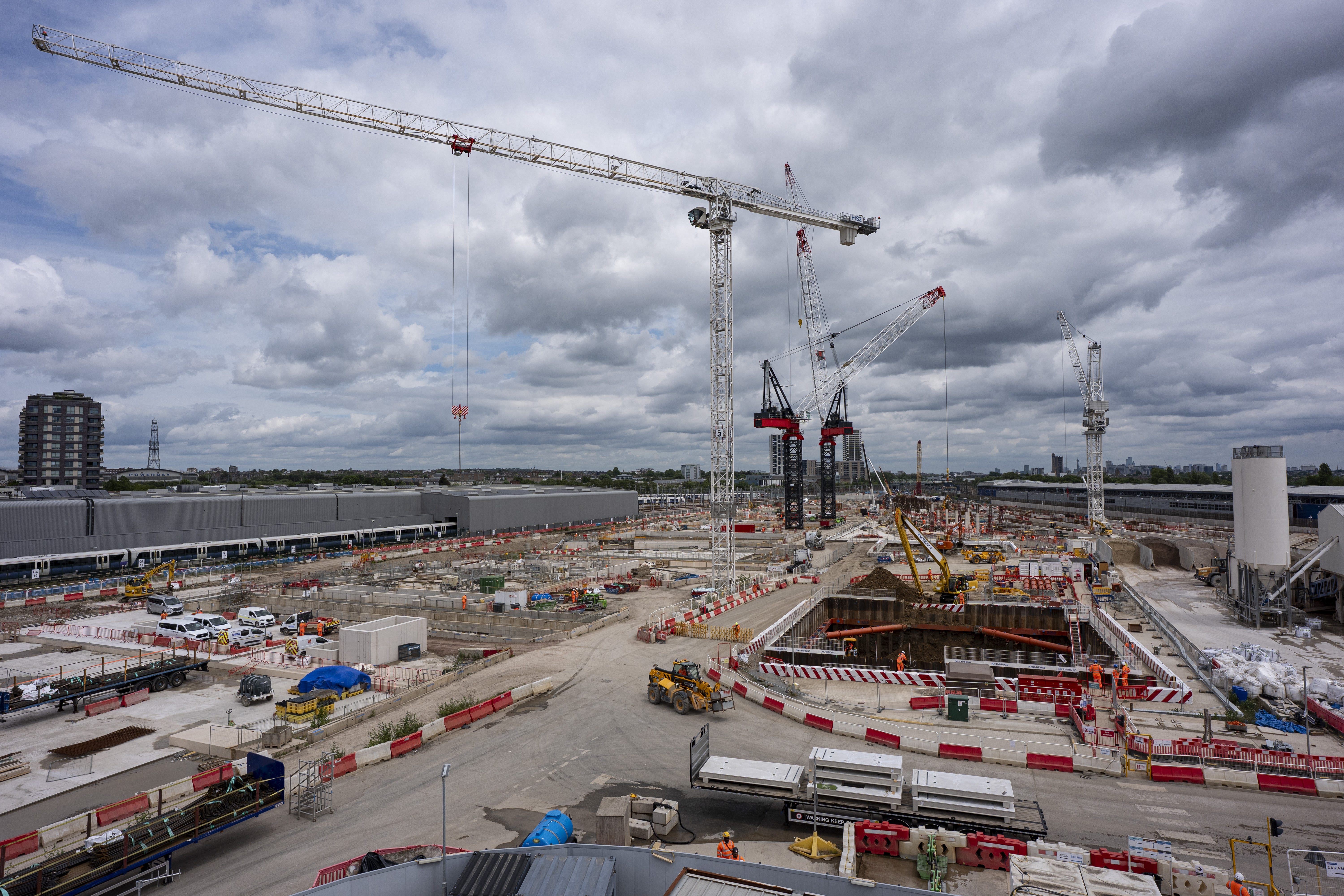A political blame game over HS2 failures – but who is right?
John Rentoul witnessed the beginnings of HS2. As the project slips further into the quagmire, he looks at who – if anyone – shares responsibility for its failures


Heidi Alexander, the transport secretary, was determined to blame the Conservatives when she announced that what is left of the High Speed Two rail project will be delayed again.
“I have to be honest,” she told the Commons on Wednesday, “this is an appalling mess.” She demanded that Gareth Bacon, her mild-mannered Conservative shadow, apologise, saying that his party had promised people “the Moon on a stick” but had left a “shambles” for Labour to sort out.
She said: “Years of mismanagement and neglect have turned HS2 into a shadow of that vision put forward 15 years ago, but this government were elected on a mandate to restore trust to our politics, and that is why we will not shirk away from this challenge and why today we turn the page on infrastructure failures.”
Was this foreseeable from the start?
I remember being in Andrew Adonis’s office when he was secretary of state for transport in 2009. He was his usual hyper-enthusiastic self as he showed me a map on the wall of his plan for a second high-speed railway in Britain. He was so excited about it, and only briefly crestfallen when I said that I thought it was a bad idea.
I asked why it would not simply increase the gravitational pull of London, and add to economic bias to the South East. He brushed aside such concerns, declaring that, on the contrary, HS2 would push economic development outwards from the capital and spread the benefits to the whole country – a full decade before Boris Johnson popularised the term “levelling up”.
What I should have said, I now realise, is that it was bound to cost much more than he expected, because he would be trying to put the first new rail route through England since the population had achieved modern levels of density and modern levels of litigiousness.
But did it have to be mismanaged so badly?
It could have been managed better. If only Adonis had remained in charge of it, I think it would have been managed better, despite being, in my view, fundamentally misconceived.
I am in awe of Adonis’s achievement. He was transport secretary for just 23 months at the end of a dying government, yet he managed to launch HS2 in that time with such momentum that the coalition government carried on with it.
But it never had a messianic delivery leader after the change of government, so it trundled along like a late-running stopper under the default structures of the British constitution. There were seven transport secretaries in the 14 years of Conservative-led government, while the civil service contracted out the management to HS2 Ltd, which was responsible for cost overruns, delays and even fraud.
Does anyone emerge with credit?
It could be argued that Rishi Sunak did the right thing, rather late in the day, to try to curtail the excess and waste. He looked at the plans in some detail, concluded that the case for the line didn’t add up, and took the difficult decision to cut losses and cancel the northern leg.
According to the House of Commons Library, the costs for the first phase, from London to Birmingham, had already risen from an estimate in 2012 of £20.5bn (in 2019 prices) to an estimate at the beginning of last year of £56bn (still in 2019 prices).
The library commented drily: “Cost increases have been driven by high inflation, as well as scope changes, worse ground conditions than expected, and optimism bias.” It didn’t even mention bat tunnels.
Is the project under control now?
Of course not, although if the delay to completion of Phase 1 is only from 2033 to 2035 that would not be too bad – 2033 was the target completion date when Adonis launched the project in 2010.
But the final part of the route in London, to Euston station, which is important to the success of the line, has not been decided yet, and will depend on private-sector investment in the property above and around the route.
One of the possible hopeful signs, however, is that Alexander has relevant experience as deputy mayor of London responsible for transport. She has worked with Mark Wild and Mike Brown, the new chief executive and chair of HS2. “Mark and Mike were part of the team, with me, that turned Crossrail into the Elizabeth line; we have done it before and we will do it again,” she told MPs.
Join our commenting forum
Join thought-provoking conversations, follow other Independent readers and see their replies
Comments
Bookmark popover
Removed from bookmarks